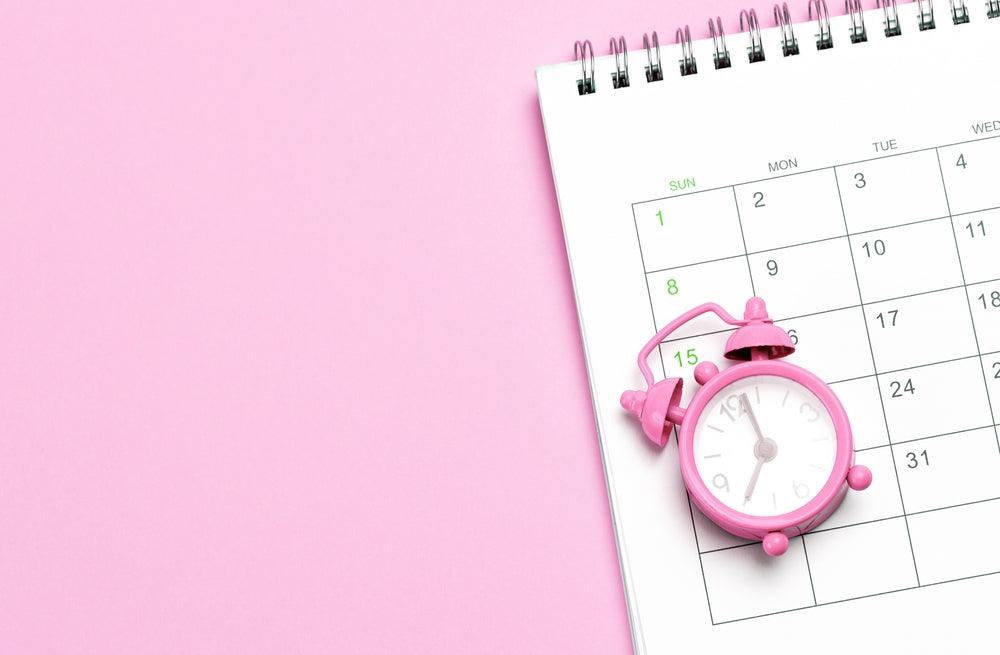Do you remember when you told your best friend that you have your periods and she told you, “Are you kidding? Me too!”?
Or the time when you went to get the heat pad at home and found that your sister got to it first?
The idea of period syncing has been passed down from mothers to their daughters and discussed in schools and women’s restrooms for centuries.
By the time you and your roommate started buying pads at the same time, I am sure you were convinced that your pheromones were talking and you googled to check if ‘period syncing’ is indeed real.
And that my dear friend is probably how you landed here; so let me help you.
What's the ‘McClintock Effect’?
Period synching involves the idea that people who menstruate and spend a lot of time with each other, may find that their periods begin to start at the same time.
The textbook term for it is ‘menstrual synchrony’, but it’s also called the “McClintock Effect”; named after a study by psychologist Martha McClintock in 1970. We have to give it to her, for startling a mainstream interest in Period syncing.
Synchronization may also be the result of what McClintock calls “the alpha uterus.” This alpha uterus has a “strong hormonal pull that causes other cycles around it to menstruate in unison.”
Well, she claims your pheromones trigger syncing cycles.
So according to this theory, if you find yourself syncing periods with people at home and your workplace/ with your friends, you could have the alpha uterus, signaling that of the others to kick into action. All hail the Alpha uterus!
Is there enough scientific evidence?
Since the 70s, there have been mixed feelings about this amidst the science community. There were various studies conducted.
Here’s the plot twist. While some supported the McClintock Effect that menstrual synchrony couldn’t be just chance; some disproved it, including a study conducted by Oxford University in 2017, alongside a period tracking company called Clue (which happens to be the latest study).
There’s a disconnect between established and folk science, and we still have no real answer to this decades-old discussion. Menstruation as a whole needs more attention and research, and until that is achieved, the idea of period synching will simply live as an anecdotal belief.
So, is it a myth then?
It’s not that simple. But there are two factors that make it hard to be true.
- There is no proof of the talking pheromones - Pheromones are chemical signals we send to other humans around us, signifying everything from sexual arousal and attraction to fertility. But there’s no concrete evidence proving that a woman can send menstrual triggers through pheromones.
- The different cycles between women - Well not every woman bleeds exactly every 28 days. Their cycles (normally) vary between 28-45 days. So the subjective timeline fails to explain the possibility of a synced period and how.
To answer the question: Is period syncing real?
Period syncing often comes down to a simple matter of time, rather than any kind of biological phenomenon. For example, if you live with another menstruating person for at least one year, your cycle length of four weeks and your roommate’s cycle length of five weeks “will eventually… coincide and diverge again.”
So if your periods surprise you and coincide with anyone else’s, it could be due to various other reasons. Because today, a majority of scientists and doctors believe period syncing to be as real as unicorns.
As for a straightforward yes or no answer, there isn’t one yet.
While your cycles may not be biologically syncing, you’re still going through the same thing. So lounge on the couch, eat ice cream and share that XL pizza while you are watching a feel-good movie. A personal recommendation would be Dil Dhadakne Do.
P.S.
Some of the studies in favor of the McClintock Effect are:
https://www.tandfonline.com/doi/abs/10.1080/02646839908404593
https://www.researchgate.net/publication/51312496_Regulation_ovulation_by_human_pheromones
Studies that disprove McClintock effect are:
https://philpapers.org/rec/YANWDN
https://academic.oup.com/humrep/article/14/3/579/632869?login=false

